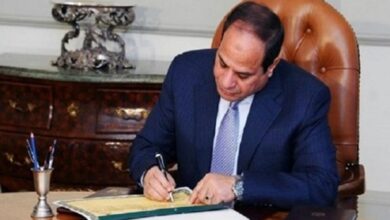The leadership of the four-party opposition coalition (comprised of the Nasserite Party, Tagammu, Wafd and Democratic Front parties), says a boycott of the upcoming parliamentary elections will be ineffective in pressuring the Egyptian government to implement fair elections.
Nabil Zaki, Tagammu Party official spokesperson, said his party will announce its stance on the elections after the ruling National Democratic Party (NDP) gives its response to demands for guarantees on election integrity, and after the Wafd Party general assembly, scheduled to meet on 17 September, makes its decision.
The Tagammu secretariat general will also meet to review other parties' decisions, according to Zaki, who indicated that the number of those who agree to participate in the elections is more important than the number of opponents.
Zaki said he does not expect to receive a response from the NDP over integrity guarantees demanded by the opposition coalition, which called for reforming the electoral commission to increase the number of judges and enhance their role in supervising the electoral process.
Mohamed Abul Ela, vice-chief of the Nasserite Party, said boycotting the elections would not be beneficial even if the opposition coalition agrees to a boycott. If 20 of Egypt's 24 political parties take part, for example, said Abul Ela, boycotting would be in vain. He added that the Nasserite Party has already decided to participate and is currently choosing candidates.
Mohamed Sarhan, vice-chief of the Wafd Party, agreed boycotting elections would not be beneficial so long as other parties announce their intention to participate. Sarhan said he expected the Wafd Party to stand in the elections.
Amr al-Shobaki, researcher at Ahram Center for Strategic and Political Studies, said that in 1990 boycotting elections proved ineffective. He described two trends that emerged in 2004. The first, among parties, was the idea that political reform should take place from within the political process. The second trend is a refusal by opposition movements such as Kefaya to participate, preferring change from outside.
Al-Shobaki explained that the opposition coalition's approach of waiting for an NDP response to their demands for election integrity is manifestation of the general responsive policy to NDP action. He reiterated that the NDP response will not guarantee truly fair elections, adding that he expects this election to be "the worst in Egyptian history."
Translated from the Arabic Edition.




